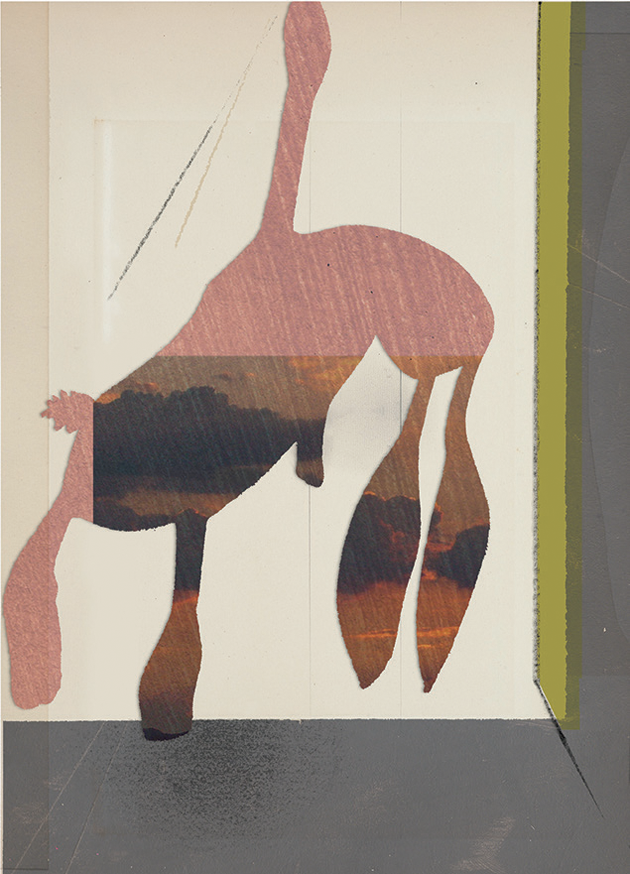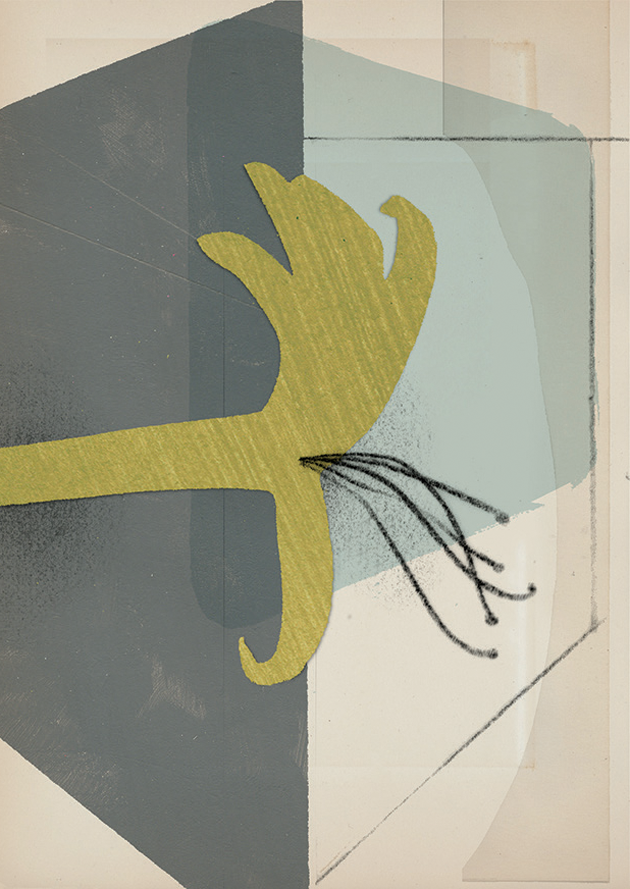I. THE PERVERTED MESSAGE
The sky was roseate at the end of the day, in the east rather than in the west — all wrong — when I encountered a mother and her small child who behaved as if they believed in each other.
The mother had irregular features and a rough complexion. The girl wore a pretty cap — blueberry blue — and they both had consumed only a few bites of their food.
They tapped instead at an activity-book page. “The clock doesn’t have a face!” the mother said. “Stay with Bunny while Mommy pays.”
I’m afraid the child’s toy rabbit had once been fat or puffed up and now it was just skin and bone and unsmiling.
Except that this was such a tender spectacle — perhaps because I am in love these days and I have recently gotten a better hold of Mr. Rottblatt, and he me, elderly though we are.
A café employee was sweeping near the girl, who had dropped her toy. He lifted up her pal by its arm and he laughed. The child bawled.
We heard a blusterous reprimand from across the room and the mother rushed back to pry the toy’s arm loose from the man.
The rabbit was coarsened through use, thoroughly soiled, although evidently suitable to carry around and to really chew on.
I slept well that night. The sky was white when we awoke and showed no significant departure in color from the norm.
It was a Spot the Difference puzzle that the mother and the daughter had been fixed upon, displaying two pictures that at first glance appeared to be the same.
Alas, there was no end to the girl’s obtuseness. She was unamazed by the missing pot of geraniums, by merely one button, only one eyeball, and no ice cream.
But how faithfully the mother urged her lamb to see.
II. HAPPY PRESENCE, TIMELESS INSPIRATION
Perhaps the wife is well enough acquainted with her husband’s finer qualities and with his practical knowledge, his contributions to their welfare. Now if only she would ever smile at him.
Yet anybody watching guests entering their home could see that the husband bows slightly. He is courtly and he is constantly like this.
In the aftermath, he remembers the compliment — or was it an insult? — that he received: “Oh, how you look like who you are!”
And, while his wife sleeps, he leaves the bed to go to a sofa he likes that is covered in old shawls — first putting on his thick robe. Just a few steps bring him closer to the cushions and to some clutter on a sideboard, including dahlias in a mug.
Surely there was something good enough here, or possibly classic.
The telephone rang. It was too late for a call. He didn’t answer it.
“Who was it?” His wife appeared.
“I don’t know.”
“You don’t know?”
“I didn’t answer it.”
“You didn’t answer it?”
He placed his hands together — not entirely, only the fingertips — and pulled them back apart.
“Why are you smiling?” his wife said.
“It’s a sneer.”
III. THE HOURS OF COINCIDENCE
I got help hoisting my saddlebag’s cross strap over my head and some cooperation so I could get out of my heavy pelerine and then up onto their sofa with my thoughts for achieving a purpose.
“Please, if you don’t mind,” Earlene said. “Well, now look at you!” She had crossed the room to ask me questions that I knew all the answers to, but somebody sighing, who also listened to me, begged to differ.
And they had put the food out, so I got up to follow Sol, who was carrying his shot glass, and we passed a mahogany stand with cloth-covered books on it. I picked up Florence Nightingale.
“The buffet!” Sol called to me, for I hadn’t moved ahead with him and had lingered alongside the long mirrors — or are those windows? — through which you can see the world or honeysuckles or whatever it is that they call it.
An edge of the carpet may have been bent up, which was why my Sol fell. Of a sudden, his head was down, face-first — way over there in the corner of the floor.
He was breathing, but nothing else.
“Talk to me!” the old lady at the hospital said to him. I was the old lady.
I didn’t want to spoil anything, so I gave him no assistance with the questions — with what was his name, our address, or with where are you now.
He said, “Who are you?” and “What?” — inquiries that I answered. But a nurse named Cliantha kindly corrected me because I was supposed to make my replies much more interesting.
I had never realized that before.
IV. DON’T TALK TO HIM FOR SUCH A LONG TIME
In due course, Arthur Churl took some of my ideas, but he had his own angle — he was effecting a sort of spiritual awakening. He had produced an outdoor living room — lounge chairs, a dining set, an umbrella.
He said, “Sure you don’t want that yellow bush?” It was a peculiar bush with yellow leaves — not as if the leaves were wilting.
“Do we want a yellow bush?” I asked my wife, who was waiting for me in the car. “It’s a light-yellow color —”
“I don’t like those kinds of bushes,” she said. “And don’t talk to him for such a long time. We have other things to do today.”
I found Churl looking hopeful. He had that row of — not a row, a couple of bushes with yellow leaves.
He raised his arms upward into a V position while I took some pleasure in the wider view from the inviting grass path of his garden.
As for my wife, no fatal clash with her or disgrace yet, and we did continue on to make our stops on schedule, including the one at the picnic grove.
The light of day may send out its messenger with guidance for us.
At the top of a hackberry, I saw a bird that then pounced, landing near our chips with his big mouth open, only sitting and then rising — no beating of his wings. The bird arose, cheeping something I’d heard many times before, the barest basics, bare basics.








































































































